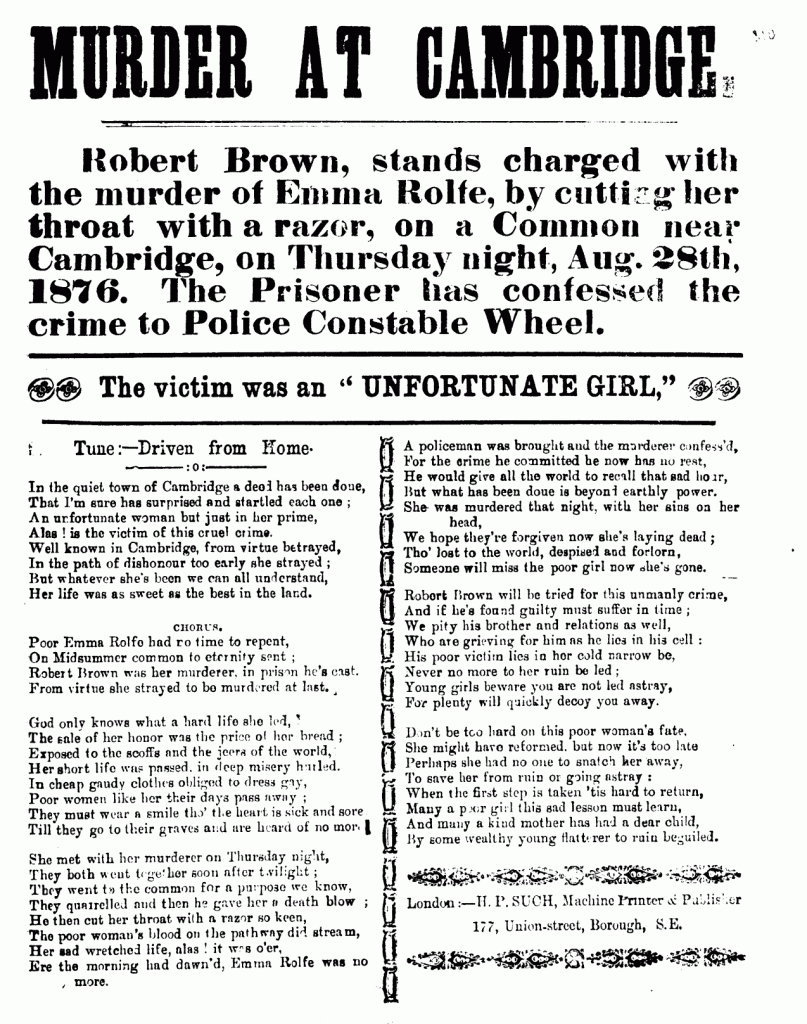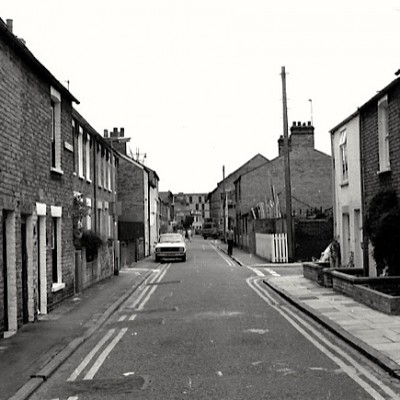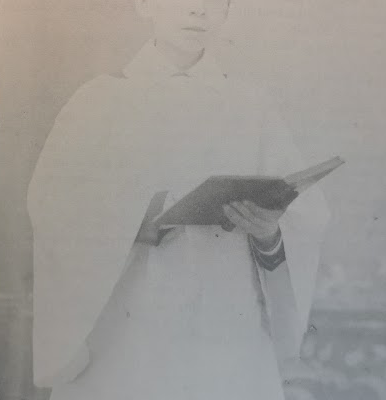Search by topic
- archaeology
- Building of Local Interest
- charity
- church
- crime
- dressmaker
- fire
- Great Eastern Railway
- Listed building
- Mapping Relief
- medieval
- oral history
- poverty
- Public House
- Rattee & Kett
- Religious House
- Roman
- scholar
- school
- Then and Now
- tudor
- women
- work
- world war one
- world war two
Search by text

Robert Browning
A dramatic event happened on 24 August 1876 that shocked the town of Cambridge
A gruesome murder
In that year, a tailor, Frederick Scriven, lived and worked in No. 15 Covent Garden (now replaced by a modern house, No. 15B). He had an assistant named Robert Browning, a former soldier. As he finished work on the fateful evening in question, Robert went up to Mill Road, and from there walked over to Fair Street (off Maids’ Causeway), where he drank a pint of beer. Thirst satisfied, he walked to the Four Lamps road junction, and there picked up Emma Rolfe, a 16-year-old prostitute, and took her to Midsummer Com mon. The two of them haggled for a while over the price, and then, in a rage, Robert slit her throat and left her body in the grass. On his way home, he met Police Constable Jo seph Wheel, confessed what he had done, and took Wheel to the site of the murder.
This gruesome story made the national newspa pers, and 2,000 people attended Emma’s funeral in Mill Road Cemetery. Her grave is located near the Norfolk Street entrance of the ceme tery, be side the main path.
The Ballad of Emma Rolfe
The Ballad of Emma Rolfe was published as a broadsheet while Robert stood accused. Its refrain ran:
Poor Emma Rolfe had no time to repent
From Midsummer Common to eternity sent
Robert Brown was her murderer, in prison he’s cast
From virtue she strayed to be murdered at last.
Guilty
Browning was tried at the Norwich assizes on 29th November and found guilty. A plea of in sanity was rejected by the Home Secretary, and he was hanged on 15th December 1876 at the Cambridge Borough Gaol, the site on which the St Anne’s car park now stands.
(Information from Philip Howell, ‛Midsummer Murder’, Emmanuel College Magazine xxxv/1 (2003/04), 122‒27)
Contribute
Do you have any information about the people or places in this article? If so, then please let us know using the Contact page or by emailing capturingcambridge@
License
This work is licensed under CC BY-NC-SA 4.0









